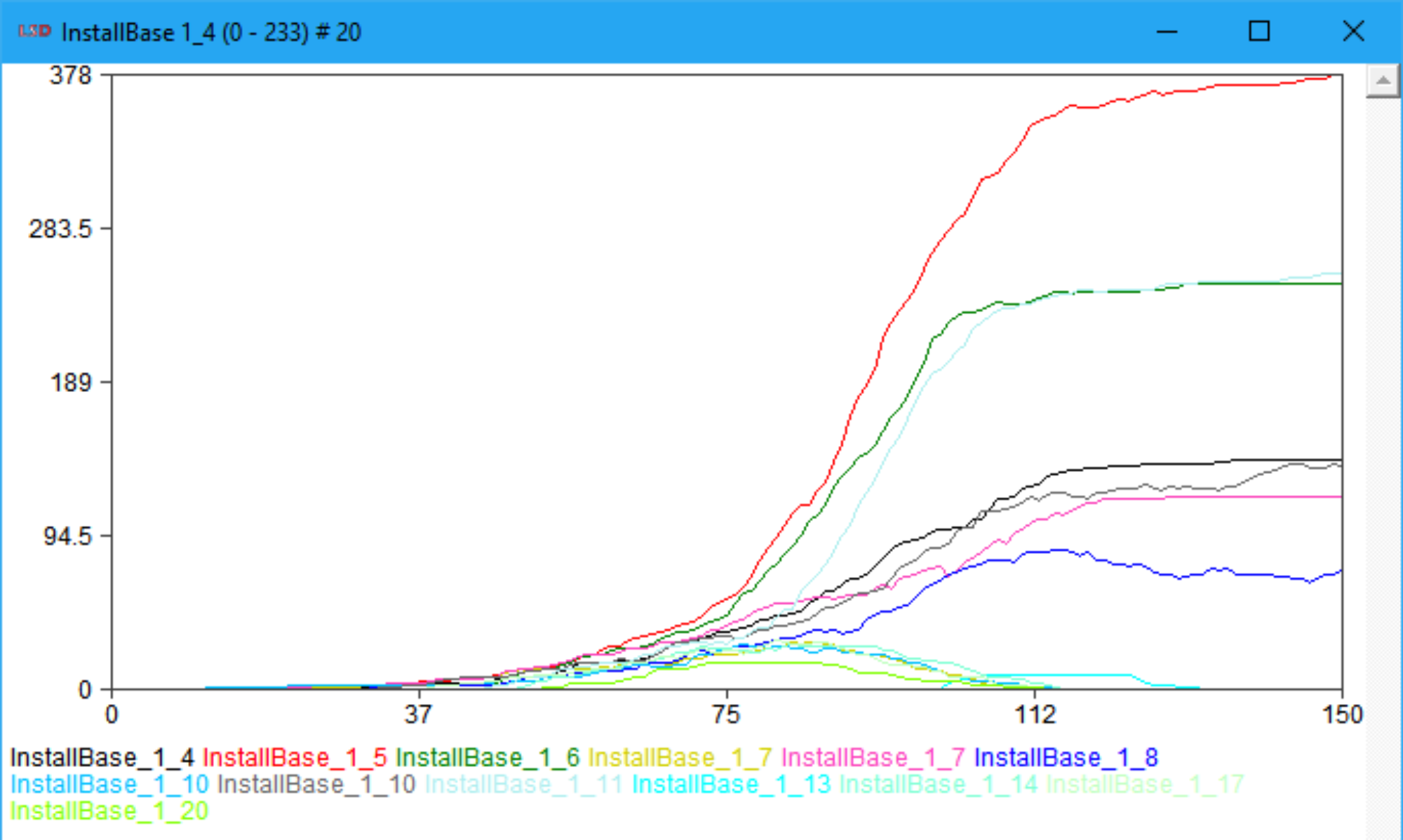LSD is a platform allowing users to generate very efficient C++ code for agent-based models with minimal efforts.
LSD defines a model as a collection of objects containing variables or parameters. Each variable is associated to a chunk of code, referred to as an equation, which is executed every time the variable needs to compute its value.
To build a model LSD offers an editor suited to write the equations of the model. The same editor allows to compile the equations, i.e. generate a program capable of computing the equations. This program is used to:
- define objects, variables, parameters
- initialise the number of objects and initial values for parameters
- run one or more simulations
- analyse the results
- export data and/or graphs
LSD requires minimal efforts on the part of users, since they need to specify only the computational content of the model while the system automatically adjusts the information provided to generate highly efficient code.
LSD models are highly scalable, potentially including an almost infinite number of elements, and extremely fast since it is essentially C++ compiled code. The same LSD code can be used on any operative system, such as Windows, MacOS, Linux, including those used in super computing centers.
The distributed installation includes and extensive set of documents describing how to use LSD, exercises, and help pages.
This is the an example of the documentation help page you will find in your local installation.
